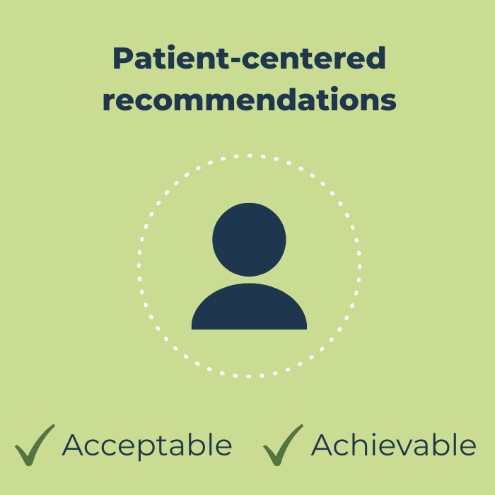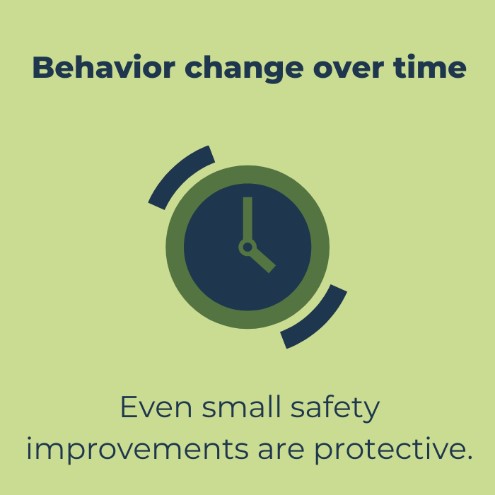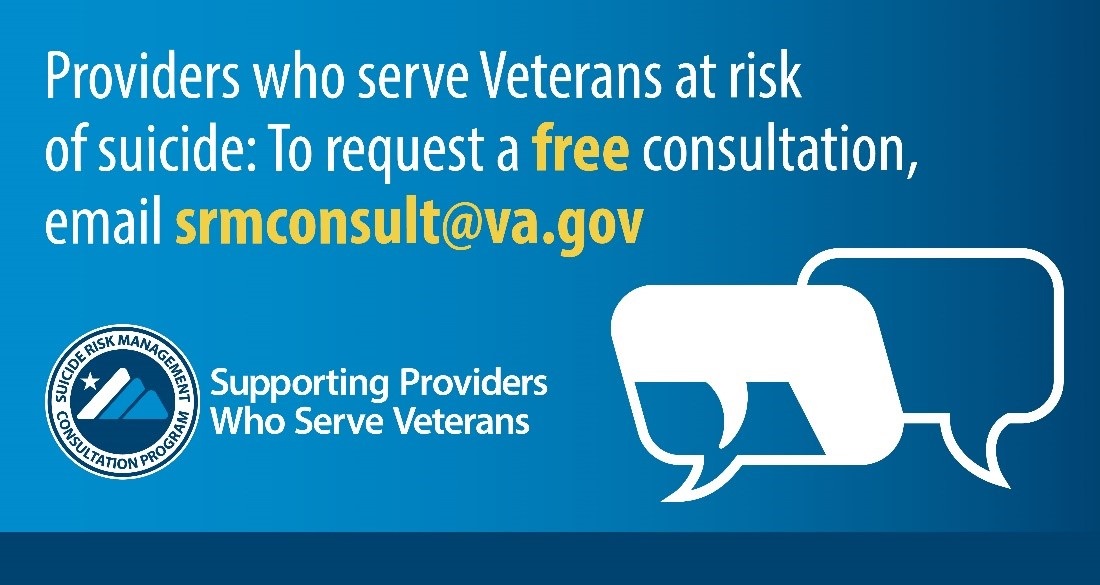Attention A T users. To access the menus on this page please perform the following steps.
1. Please switch auto forms mode to off.
2. Hit enter to expand a main menu option (Health, Benefits, etc).
3. To enter and activate the submenu links, hit the down arrow.
You will now be able to tab or arrow up or down through the submenu options to access/activate the submenu links.
Locator
Contact
Search
Lethal Means Safety Counseling
 |
|||
 |
 |
 |
 |
What is Lethal Means Safety Counseling?
| This video gives clinicians and community providers guidance on talking to Veterans about the safe storage of lethal means such as firearms and poisons. |
| Lethal Means Safety Counseling (LMSC) is a patient-centered counseling strategy that aims to promote safety behaviors by aligning evidence-based recommendations with patients’ preferences and values. | |||
| 1. Patient-centered. As with any evidence-based clinical recommendation, the key is to identify to what extent potential recommendations are acceptable and achievable by your patient. | |||
| 2. Flexible. There is no “one-size-fits-all” recommendation that can be used for all patients. | |||
| 3. Similar to other behavior change conversations. Recognizing that behavior change can be challenging will help align your expectations with your clinical experiences. Behavior change takes time, but incremental improvements in safety are important and protective. When possible, follow-up conversations may be helpful in supporting your patients. Individuals who reduce their access to lethal means during times of heightened risk are reducing their risk of dying by suicide. Review the facts on the LMS Evidence page. |
|||
 |
 |
 |
|
| Lethal Means Safety Counseling (LMSC) is flexible, patient-centered and similar to other behavior change counseling conversations. | |||
Factors that may facilitate LMSC
1. Your relationship with your patient. Prior studies have shown that trust is an important factor in successful LMSC and suicide prevention discussions. Link to reference 1 | Link to reference 2 | Link to reference 3 |
| 2. Use of evidence-based communication strategies, such as motivational interviewing (MI) or shared-decision making. |
| 3. Creating a non-judgmental space for the discussion. Link to reference 1 | Link to reference 2 |
| 4. Knowing that there are no legal barriers to discussing lethal means safety, including firearm-related safety, with your patients. |
| 5. Practice, practice, practice. |
Factors that can hinder LMSC
1. Given that trust and rapport may be crucial elements of LMS discussions, promoting behavior change in acute settings (e.g., emergency departments) in the absence of a pre-existing clinician-patient relationship may be challenging. Whenever possible, provide opportunities for follow-up, coordinate additional care, and/or involve trusted family members and/or friends in your care plan. |
| 2. There are sociocultural values and reasons for lethal means ownership or access that should be considered in discussions with Veterans (for more, see the LMS Recommendations page). |
How do Veterans and firearm owners feel about firearm-related discussions in clinical settings?
1. In a nationally representative study conducted in 2015, 66% of U.S. adults, 54% of U.S. firearm owners, and 57% of Veterans agreed that it is at least sometimes appropriate to discuss firearms in clinical settings. Link to reference |
| 2. In 2015, of 660 Veterans receiving Veterans Health Administration (VHA) mental health treatment, 93% endorsed at least one healthcare system intervention to reduce access to firearms by those at risk of suicide. Link to reference |
 |
||
| Many U.S. adults believe discussions about firearms with health care providers are at least sometimes appropriate. |
Access additional LMSC and motivational interviewing training on the Additional Resources page.
Ask questions or get help
Suicide Risk Management Consultation Program
 |
||
| The Suicide Risk Management Consultation Program (SRM) provides free consultation, support, and resources that promote therapeutic best practices for both VA and community providers who treat Veterans at risk of suicide.Visit the SRM page. |
Site Map
Last Updated 19 August 2021



















